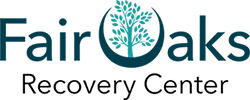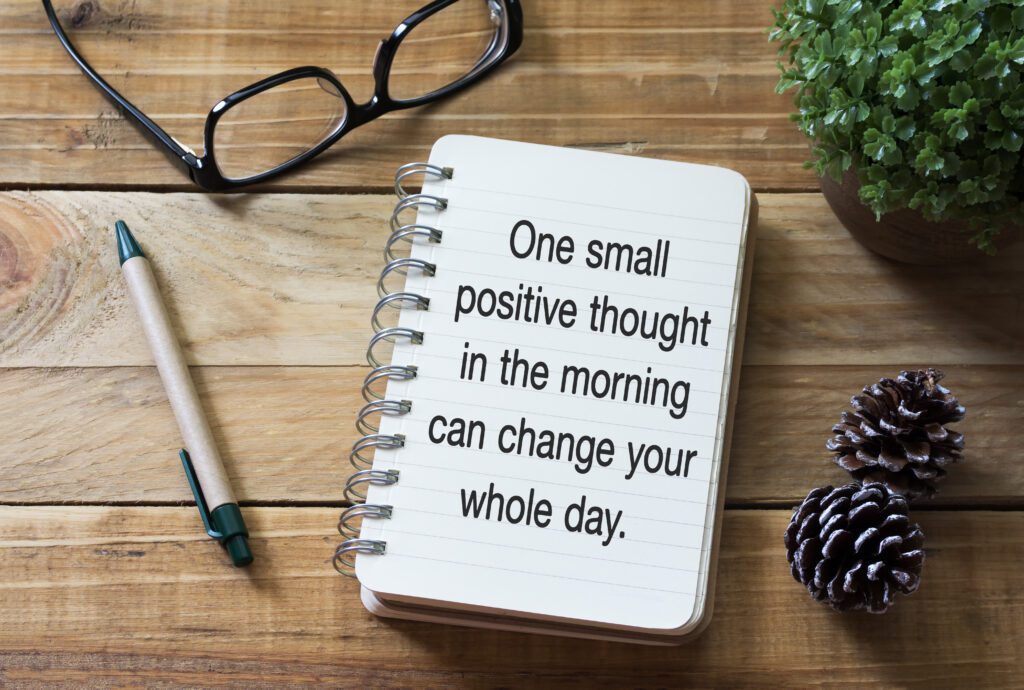It’s not natural for people to be positive all the time. This isn’t a judgment: our brains are hardwired with negativity bias as a protection mechanism—and our primitive ancestors survived because of this ability. But as modern humans, we actively have to work on moving from a fixed mindset to a growth mindset and retrain our thought processes, especially in recovery. Positive affirmations might help.
What Are Affirmations?
Positive affirmations are short, powerful statements or phrases that we repeat to ourselves with the intention of cultivating a positive mindset and fostering self-belief. These affirmations are designed to challenge and overcome negative thoughts or self-doubt, reinforcing positive thinking patterns.
When we consciously focus on positive statements, this cognitive restructuring allows us to create a mental environment that supports growth, resilience, and well-being—we focus on strengths and possibilities rather than limitations.
The practice isn’t pseudoscience: it’s what the John Templeton Foundation refers to as positive neuroscience: a method that helps influence our brain’s neural pathways and reprogram our subconscious mind, replacing limiting beliefs with empowering ones. University of Pennsylvania researchers discovered that individuals who repeated self-affirming phrases had physical changes in brain regions associated with self-processing, which ultimately impacted their perspective and, consequently, helped them make positive changes in their behavior.
Examples of Positive Affirmations
Affirmation statements are usually in the present tense, phrased as an “I” statement, and target a specific area, behavior, or belief. The goal is to turn a negative into a positive. But this isn’t wishful thinking: in fact, sometimes it’s important to acknowledge reality in an actionable way. This approach adds to your motivation and goal of sobriety.
Your intention is to say affirmations aloud or, at the very least, write them down and put them in a place where you see them daily. Over time, according to the principles of positive neuroplasticity, consistent affirmation practice improves your sense of self and your perspective.
So what might your affirmations be? Here are a few examples from the therapy site BetterUp:
- I prioritize my well-being.
- I can do the hard things.
- I trust myself to make good decisions.
- I have everything I need to achieve my goals.
- I am proud of myself and my achievements.
- I am resilient in the face of challenges.
- I do my best, and my best is good enough.
- I am grateful for another day of life.
- I am safe and supported.
- I love and accept myself.
We also like these examples from The Good Trade.
- I affirm and encourage others, as I do myself.
- I am proof enough of who I am and what I deserve.
- I am capable of balancing ease and effort in my life.
- I am worthy of investing in myself.
- I am open. I am healing. I am happy.
- I grow towards my interests, like a plant reaching for the sun.
- I invite art and music into my life.
- I am growing and I am going at my own pace.
- I can hold two opposing feelings at once, it means I am processing.
- I nourish myself with kind words and joyful foods.
- I release the fears that do not serve me.
- I celebrate the good qualities in others and myself.
If you’d like positive affirmations to help with recovery, try:
- My past does not define me: I am creating my own story now.
- I am strong and have the skills and abilities to handle this difficult situation.
- I am getting healthier every day.
- I will not be a victim of my circumstances.
- Asking for help is a sign of self-respect and self-awareness.
- I do not have to linger in dark places; there is help for me here.
- Every cell in my body is healthy and whole.
- I release all negativity from my past and present and open myself up to endless possibilities.
- I am not to blame for my abuser’s actions.
- I am grateful for all the abundance in my life.
- I choose thoughts and beliefs that empower me.
- I am becoming a better version of myself each day.
We have more information about positive affirmations you might find interesting.
The Whole-Person Approach at Fair Oaks
Addiction and dual diagnosis treatments are more than just identifying a set of symptoms: they involve progressive methods for whole-person healing. At Fair Oaks Recovery Center in Sacramento, California, we’ve earned the status of a licensed Chemical Dependency Recovery Hospital, issued by the California Department of Public Health to addiction rehabilitation and dual diagnosis treatment facilities that provide high-level acuity care. Our philosophy is to provide the best quality of individualized solutions to help you pursue wellness in all aspects of yourself. Talk to one of our admission specialists today to learn more.



